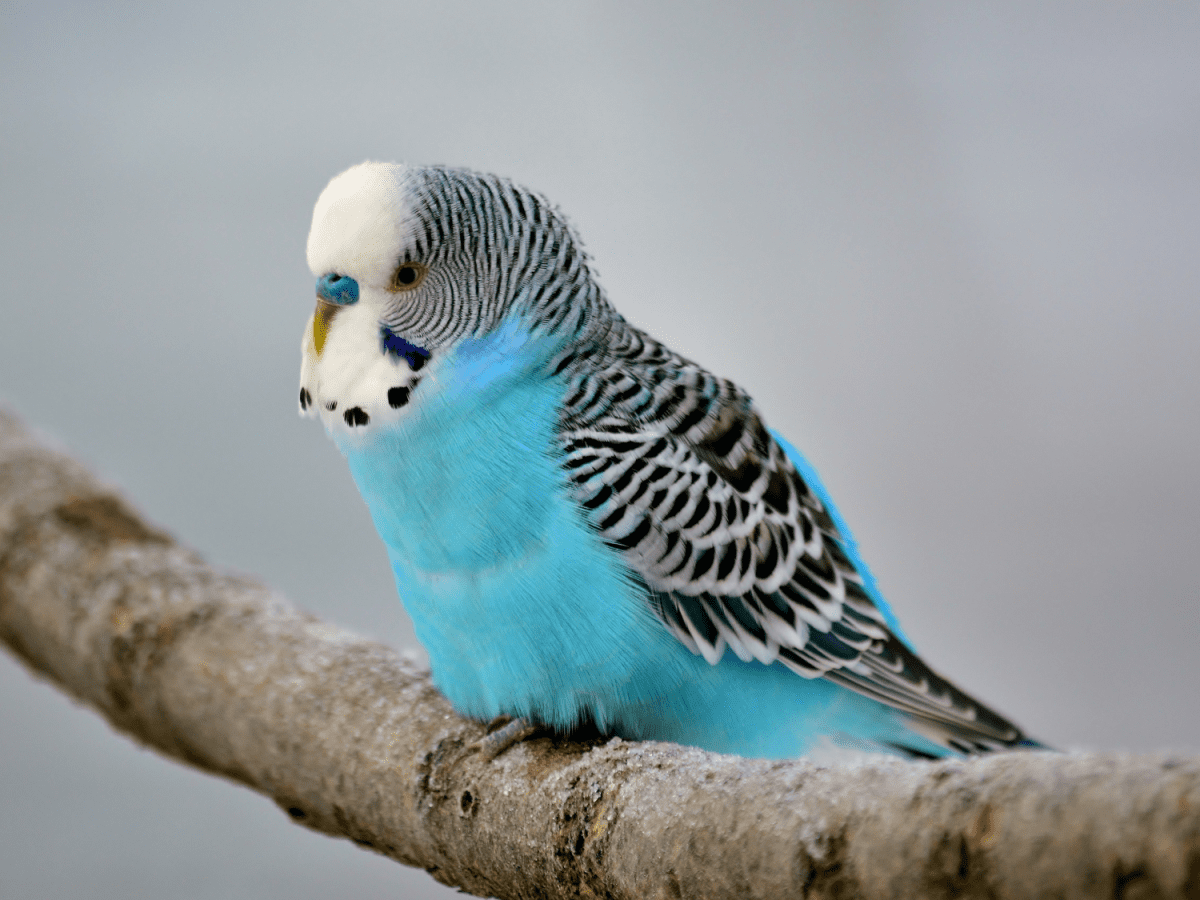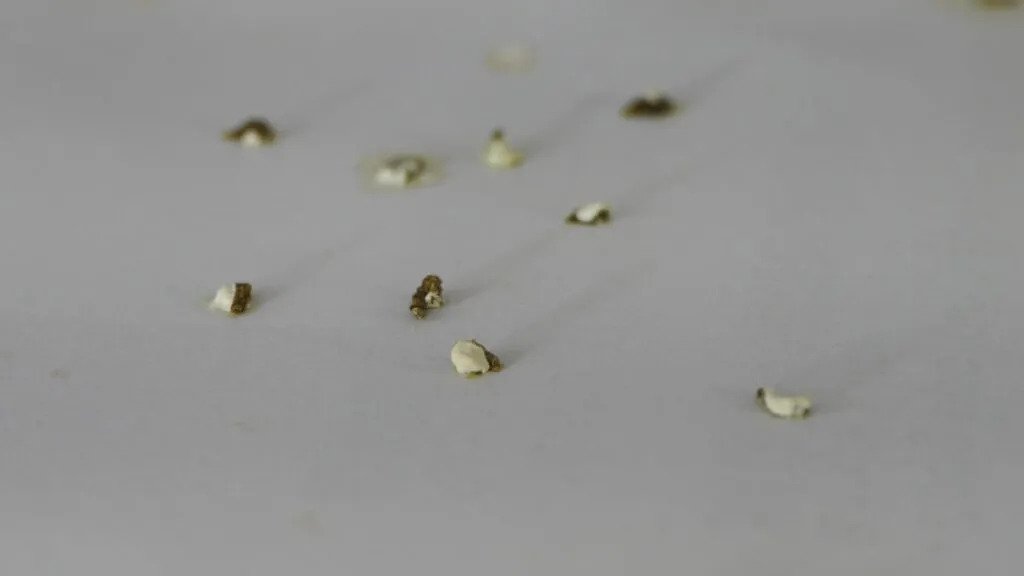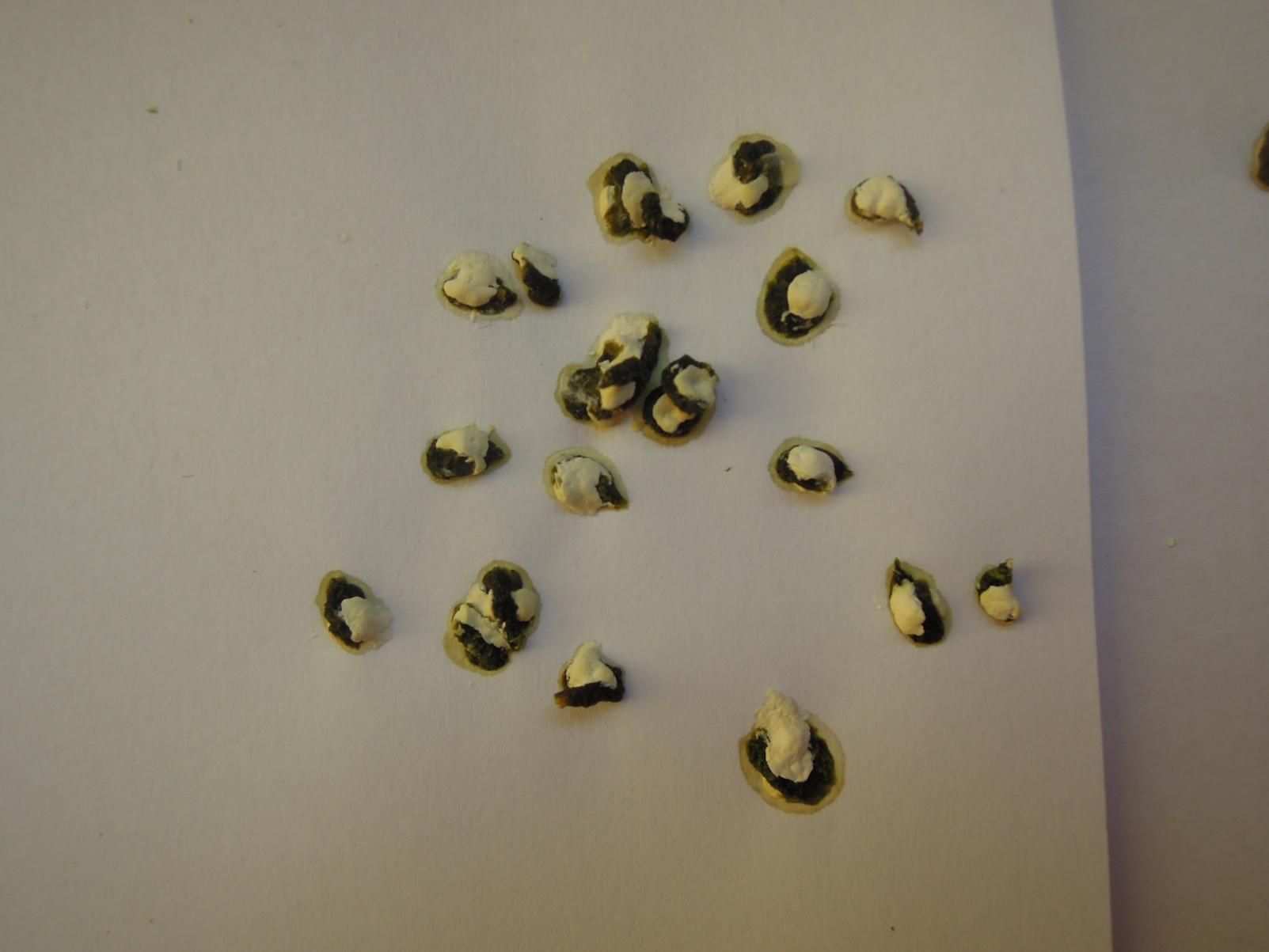Normal Budgie Poop - Everything You Need To Know
One crucial aspect of maintaining your budgie's well-being involves vigilant observation of its droppings. Normal Budgie poop serves as a vital indicator of their overall health.
Author:Sophia HarperReviewer:Maya ReyesDec 08, 202328.6K Shares843.2K Views

Budgie owners, enamored by the charm of their affectionate and mimicry-capable pets, understand the importance of attentive care. These unique and adorable birds, also known as parakeets, have captured the hearts of pet enthusiasts worldwide. The joy of having a budgie as a companion comes with the responsibility of providing optimal care, which extends beyond mere affection.
One crucial aspect of maintaining your budgie's well-being involves vigilant observation of its droppings. Normal Budgie poopserves as a vital indicator of their overall health. For pet owners, recognizing and understanding the nuances of budgie poop is an essential skill in ensuring the continued happiness and vitality of these awesome avian companions.
Normal Budgie Poop Color
Curious about what constitutes normal budgie poop? Essentially, a healthy budgie's droppings comprise three distinct components: the feces, the urine, and the urates, each offering valuable insights into your bird's overall health.
The feces portion should be tubular and firm, displaying a green or brown hue, influenced by your budgie's dietary choices. Conversely, the urine component is generally clear and liquid, encompassing the solid feces.
Finally, the urates, represented by the white part of the droppings, usually exhibit a pasty consistency and should remain devoid of any additional coloration. Together, these elements form a comprehensive picture of your budgie's well-being, making regular observation of their droppings an essential aspect of responsible pet care.
Feces
The feces segment of your budgie's droppings originates from the digestive tract, transporting waste materials that the bird's body doesn't require. Typically, this component maintains a tubular shape and is firm yet not excessively hard.
The color of the feces can exhibit a broad range, contingent upon the specifics of your budgie's diet. A predominantly seed-based diet might result in lighter-colored feces, often presenting as a greenish hue.
Conversely, a diet rich in fruits and vegetables could contribute to a darker green or even black coloration in the feces. Understanding these variations helps you gauge the impact of dietary choices on your feathered friend's waste and overall health.
Urine
The urine constitutes the watery component within your budgie's droppings. Primarily serving as the bird's mechanism for eliminating excess water, the urine should ideally be clear and colorless. In a healthy budgie, the droppings strike a balance with a moderate amount of urine - sufficient to moisten the feces without making them excessively runny or wet.
Should you observe a notable increase in urine volume, it could signify heightened water intake, prompting the need for further attention to potential underlying health concerns. Monitoring the urine content in the droppings contributes to the overall assessment of your feathered companion's well-being.
Urates
The white or cream-colored pasty substance you commonly observe in your budgie's droppings originates from the urinary tract. This substance is essentially concentrated uric acid, a waste product that your budgie's body expels.
Normally, urates should maintain their pure white coloration, devoid of any additional hues. The presence of color in urates could signify an underlying health issue.
For instance, yellow or green-tinted urates might be indicative of liver disease, whereas red or brown hues in urates could suggest the potential presence of blood in the urine. Regular scrutiny of the urates in your budgie's droppings plays a crucial role in identifying and addressing potential health concerns promptly.
White Budgie Poop
Encountering completely white budgie poop might understandably raise concerns, and it's important to take notice. A dropping that is entirely white, lacking the usual green or brown feces component, is not a typical occurrence. This unusual sight could potentially indicate that your budgie isn't consuming enough food, resulting in the absence of feces in their droppings.
Furthermore, a substantial amount of white material, especially if it appears pasty or chalky, may signal an excess of urates. This situation can serve as an early warning sign of potential kidney disease or other underlying health issues.
Given these circumstances, it becomes crucial to seek professional advice and consult with a vet if your budgie consistently produces entirely white droppings. Early intervention can be key in addressing and mitigating potential health concerns.
Yellow Budgie Poop
Encountering yellow budgie poop is undoubtedly cause for attention. In the feces portion of the droppings, the presence of yellow is abnormal and may suggest a dietary issue or potential health concern.
If the urates of the droppings exhibit a yellow coloration, it could serve as an indicator of a potential liver problem. This change in color may be attributed to the liver's possible failure to adequately process bilirubin, a waste product typically excreted with the feces.
When yellow appears in your budgie's droppings, it is advisable to schedule a visit to the vet. A professional evaluation can help pinpoint the underlying cause and guide appropriate interventions for your feathered companion's health.
Green Budgie Poop
Discovering green budgie poop in the cage is a usual occurrence for budgie owners, especially when their pets have a diet abundant in greens or vegetables. Generally, it is the feces component of the droppings that exhibits this green coloration. However, if the green hue appears excessively dark or if the droppings are overly soft or loose, it may warrant concern.
These symptoms could indicate dietary problems or potential gastrointestinal issues, making it prudent to seek veterinary advice. Consulting with a vet ensures a thorough evaluation and appropriate guidance to address any underlying health issues affecting your feathered companion.
Dark Green Or Black Budgie Poop
Coming across dark green or black budgie poop might initially trigger an alarm, but it doesn't automatically signify trouble. Budgies with diets rich in fruits, vegetables, or pellets commonly produce dark green or even black feces. However, if there are sudden changes to a darker shade, particularly if the feces become tarry or sticky, it could be indicative of bleeding in the upper gastrointestinal tract.
In such cases, it's crucial to promptly reach out to a vet for professional evaluation and guidance. Swift action ensures timely intervention and appropriate care for your feathered friend.
Healthy Budgie Poop
Vigilantly observing your pet budgie's droppings is a fundamental aspect of ensuring its continuous well-being, allowing you to promptly identify any potential issues and address them swiftly. But how does one determine what constitutes healthy budgie poop?
A key indicator of a budgie's health lies in the shape and color of its droppings. Ideally, healthy budgie poop should be round and exhibit a pleasing green or olive hue. The urine component should appear clear, while the urates, typically white, should be present in a proportionate amount to the green portions.
The ability of the droppings to maintain the exact position in which they were expelled is another positive sign. A healthy budgie's poop should possess a degree of stiffness and a soft consistency, allowing it to retain its form.
While variations in the components of the droppings might occur due to dietary changes, temporary shifts should not cause undue alarm. For instance, introducing commercial supplements may alter the color temporarily, but this is usually reversible as the bird adapts to the new diet.
Texture is another important factor in assessing the health of your budgie's poop. It should strike a balance, neither too wet nor too dry, with a preferred paste-like consistency that avoids excessive liquidity. Importantly, the droppings should remain odorless.
In essence, maintaining a watchful eye on these characteristics provides valuable insights into your amazing pet bird's health. Regular monitoring, coupled with a proactive approach to dietary adjustments, ensures that your budgie remains happy and healthy.
Unhealthy Budgie Poop
Observing your cherished pet over time allows you to discern the norm from the abnormal when it comes to their droppings. Sudden shifts in their excrement can serve as a warning sign, prompting the need to seek advice from an avian veterinarian.
Dark, nearly black droppings may signal an issue, as they often indicate the presence of bile. Similarly, yellowish-green urates could indicate an underlying illness, while the appearance of redness due to blood could potentially suggest lead poisoning.
Another concerning type of dropping is excessively watery, containing an abundance of liquid. This condition, termed polyuria, can result in loose-looking but consistent droppings, differing from diarrhea, which lacks form and consistency. Furthermore, the presence of sizable undigested food portions in droppings might point to digestive troubles.
However, alterations in diet, such as introducing more vegetables, colored pellets, or fruits, could lead to temporary changes in your budgie's droppings. In such cases, initial concern might not be necessary. Yet, if these changes persist or worsen, seeking the guidance of a vet becomes crucial to ensure the well-being of your adorable feathered friend.
Does Budgie’s Poop Smell?
If you've had the pleasure of interacting with various mammals, you're likely familiar with the distinctive odor that accompanies their droppings. However, when it comes to your delightful budgie, should you brace yourself for a similar experience? The good news is, not really.
Unlike mammals, the diet of your charming pet bird predominantly consists of fruits and vegetables, with minimal meat consumption. In mammals, meat protein contains sulfides that contribute to the characteristic odor of their poop. Fortunately, budgies lack a cecum and the fermentation processes in their digestive systems lead to gas and odor production. As a result, when your budgie leaves a dropping, you can expect no unpleasant smell.
The absence of odor and the inherent cleanliness of these feathered companions bring a sense of relief to budgie owners. The lack of smelly poop is not only a testament to their dietary habits but also serves as a unique aspect of avian care.
However, it's essential to note that if you do happen to detect an unusual smell from your budgie's droppings, it could be a sign of an underlying health issue. In such cases, seeking veterinary assistance promptly ensures the continued well-being of your feathered friend, as no one wants an unhealthy budgie disrupting the joy they bring to our lives.
How Often Should A Budgie Poop?
Being an attentive budgie owner involves paying close attention to even the subtlest changes in your feathered friend's behavior, including its poop patterns and frequency. The number of times a budgie poops can vary based on its size, with smaller budgies typically requiring more frequent cleanings than their larger counterparts.
On average, a budgie may poop anywhere from 40 to 50 times in a day, with intervals of approximately 10 to 20 minutes between each episode. Some individuals may exhibit even more frequent excretions. This high frequency is attributed to their rapid metabolic rate and efficient food processing.
Budgies are known for their active flight, and to facilitate this, they maintain a lightweight body. Regular pooping aids in weight management, ensuring they remain agile in the air. However, there are circumstances that may lead to a temporary reduction in pooping frequency, such as when a female budgie is laying eggs. In such cases, the bird may hold onto its droppings for more extended periods, resulting in fewer poops per day.
Despite their frequent bathroom breaks, the lack of odor in budgie poop generally makes the process more tolerable for pet owners. In fact, the regularity of their pooping is essential for their well-being.
If, however, you notice a sudden decrease in pooping or signs of distress, it could indicate a potential blockage in their gastrointestinal tract, necessitating prompt attention. Ultimately, the regularity of your budgie's pooping is a positive aspect of their health and should not be a cause for concern.
What Is The Right Amount Of Budgies Poop?
While the frequency of your budgie's pooping is a natural part of their routine, it's equally important to pay attention to the quantity released. The amount of poop generated is contingent on your budgie's size and should remain relatively consistent. Smaller budgies tend to produce smaller droppings, while larger counterparts generate larger ones. Additionally, dietary changes can slightly influence the volume and composition of their droppings.
Should you notice an increase in volume, it's crucial to identify which component of the poop has escalated. For instance, an uptick in the green portion (feces) may indicate a potential digestion problem. Conversely, an increase in urine volume could signify issues such as diabetes, kidney diseases, or excessive water intake.
If all components of the droppings increase simultaneously, your budgie may be holding onto its poop for an extended period. However, abrupt and significant changes in the quantity or composition of the droppings should prompt a closer look and, if necessary, consultation with an avian veterinary doctor.
As you clean the cage, take note of the amount and size of the droppings, helping you establish what's normal for your pet. Consistent monitoring ensures you can swiftly identify deviations from the norm, enabling proactive care for your beloved feathered companion.
Normal Budgie Poop - FAQ
What Is Unhealthy Poop For Budgies?
You should be alarmed if the dropping color is anything but brownish, green, and olive green mixed with white. For example, your bird may be sick if the white in its poop becomes yellowish-green or bright yellow. If the poop contains blood, this might be a sign of lead poisoning.
Can Budgie Poop Make You Sick?
Psittacosis is a disease caused by bacteria (Chylamydia psittaci) spread through the droppings and respiratory secretions of infected birds. People most commonly get psittacosis after exposure to pet birds, like parrots and cockatiels, and poultry, like turkeys or ducks.
How Do You Clean Poop Off A Budgie?
Poop will also cling in this way if the budgie is dehydrated. If you have to intervene, you will need to grip the bird as described in Holding your budgie, above. Use wet cotton wool balls to wash the area, wiping down the feathers from root to tip. Soap can cause irritation, so don't add anything to the water.
Rounding Up
Taking care of your budgie is like tending to a colorful garden, and understanding their droppings, especially normal budgie poop, is like knowing the soil's health. It's not just about their vibrant feathers and cheerful tweets - those little droppings are tiny health indicators. Knowing what's normal helps you keep your feathered friend happy. So, when you see those small signs, remember, they're telling you about your budgie's well-being. Being mindful of normal budgie poop is a key part of being a caring bird owner.

Sophia Harper
Author
Sophia Harper’s photography acts as a portal to the soul of the places she visits. Drawn to South America’s landscapes and cultures, she has spent years capturing everything from the majesty of ancient ruins to the vibrancy of urban streets.
Sophia’s work isn’t just about documenting moments; it’s about evoking the emotions and stories behind them. A dedicated photographer, she has worked with local communities across South America to capture their rich cultural narratives through her lens.

Maya Reyes
Reviewer
Maya Reyes’s wanderlust was sparked in the temples of Luang Prabang, where the scent of lemongrass and the chants of monks revealed the transformative power of travel.
Since then, her journey has been defined by cultural immersion and authentic connections. From learning batik in Indonesia to sharing meals with nomadic families in Mongolia, Maya seeks experiences that highlight the human stories behind each destination.
Travel for her is a way to weave her narrative into the world’s cultural tapestry, creating bridges across diverse ways of life. Maya has traveled to 15 countries and shares her insights through writing and storytelling.
Latest Articles
Popular Articles

